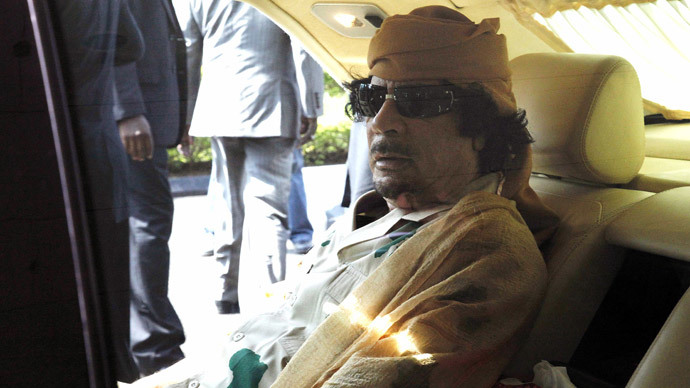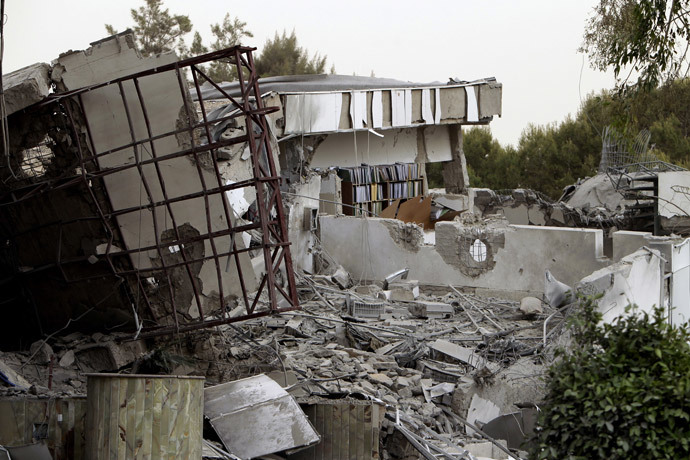Libyan powder keg – blows!

On October 20, 2011, Libya’s undisputed lord, Colonel Muammar Gaddafi, was killed while attempting to escape from his stronghold of Sirte, following a joint attack from French aviation and anti-government rebels.
Little is known about how things actually went that day, and three years later it is still not known how and by whom the Colonel was killed.
The mystery of Gaddafi’s death perhaps foreshadowed the chaos into which the country would be plunged a few weeks later, when the various militias in the area began to fight for control of the land and the wealth of the country. In the summer of 2014, the violence exploded and militias destroyed Tripoli airport with mortars, missiles and tanks, while thousands of people fled to neighboring countries. Western countries (the USA, Great Britain, France, Germany and Canada) have withdrawn their diplomatic staff and the Libya has been transformed into a battlefield where not even refugee camps can be built.
With the fall of the only person able to hold the nation together, by force for sure, with human rights violations, with crimes and robberies, Libya has descended into such anarchy that it seems impossible for the country to emerge from it in the short to medium term. The political leaders that have taken over have not done anything more than slowly erode the state’s assets.
Now Libya is ruled by no one. The law rendering criminals all those who had worked for Gaddafi has made the country ungovernable because the people in parliament have never held government office before. The future of Libya actually appears similar to that of Somalia, with the difference that in the former the resources are infinitely more than in the Horn of Africa, with all that this entails.
Some months ago, the parliament, elected by only 10 percent of the population, moved to Tobruk on the Egyptian border. In Tripoli another parallel parliament, supported by countries aligned to Qatar, has been set up by the militias of Misurata and Abdelhakim Belhaj. Fanaticism is spreading in the vacuum left by the collapse of the state and it is no coincidence that the former Libyan Prime Minister Ali Zeidan, who fled abroad, was one of the few leaders of the country to publicly admit his fears of Islamic extremist groups linked to Al-Qaeda, Ansar Al Sharia and various other Salafist factions.

The UN Human Rights Chief warned that civil society, bloggers and professionals in Libya face a "climate of fear". Zeid Ra'ad Al Hussein says his agency has received numerous reports of assaults targeting rights advocates in Libya, including murder, abduction and death threats. Many have fled or suspended their work. The UN High Commissioner for Human Rights said in a statement that the attacks can be called "war crimes” and that the perpetrators have "total impunity" for such attacks and threaten Libya's few independent voices.
But Islamic extremists’ fanaticism and violence did not start suddenly this summer, when the Western media began to realize that the situation in the country was exploding. The chaos in Libya did not start on July 13 when a real battle (lasting up to 24 August) for control of the airport erupted. The militias of Al Aaqa e Al Sawai, from the mountain town of Zintane, which, after the fall of Gaddafi, had taken control of the airport, were fighting with Libyan Dawn, led by Salah Badi, which in the last three years has become the strongest armed militia in the country, taking control of many neighborhoods in Tripoli. The chaos in Libya began in 2011 when NATO air strikes accelerated the collapse of the Gaddafi government and the country's new leaders have failed to give shape to the central authority. The towns have been left at the mercy of militias and in a highly fragmented political landscape the presence of many weapons have led, inevitably, to a spiral of violence.
These militias have regional, tribal and ideological roots, but they all claim to be “protecting” the revolution and their fellow citizens. The Libyan state's inability to rein in the militias has led to a vicious cycle: a widespread perception of government helplessness undermines its legitimacy, which in turn compels armed groups to argue that they cannot give up their weapons as long as the government is incapable of providing security. In this spiral of mistrust, the militias are a cause and a consequence of state weakness.
Was it better in Libya three years ago? We certainly cannot be the ones to say so, but the fact that this summer, according to a UN report of 4 September, about 250,000 Libyans fled their homes and 150,000 went abroad does not bode well for those who decided to violently overthrow the government, without first thinking about how to rebuild the country that would inevitably swiftly crumble after decades under the same iron fist.
As if this was not enough, on August 18 unknown air forces bombed some positions of Libyan Dawn in Tripoli. Later the aircraft were identified as ones from the United Arab Emirates, which would have had to operate with the logistical support of Egypt. The tensions in the Arabian Peninsula between Qatar and the Saudi Arabian bloc continue to inflame conflicts throughout the region. The worsening of the crisis in Libya will certainly have serious repercussions on neighboring nations as the six countries that share borders with Libya are all vulnerable. The risk is that extremist groups could turn this part of Africa into a new arena of terror. In Northern Africa, Tunisia and Algeria share concerns about their future, because with the military operation in Mali, France has pushed Islamic extremists towards their border areas. What if Libya becomes a destination for terrorists forced out of their “Islamic State” in Syria and Iraq by airstrikes from the international coalition? These groups would look for another hotbed and could find fertile soil in Libya, a country that has active Al-Qaeda linked groups.
Three years have passed and we can now say the NATO war has destroyed Libyan institutions and created a failed state. The West appears disinterested in the disaster it helped create and is now coming to terms with a powder keg that, unlike Syria and Iraq, is located 500 km off the European coast.
The statements, views and opinions expressed in this column are solely those of the author and do not necessarily represent those of RT.
The statements, views and opinions expressed in this column are solely those of the author and do not necessarily represent those of RT.













